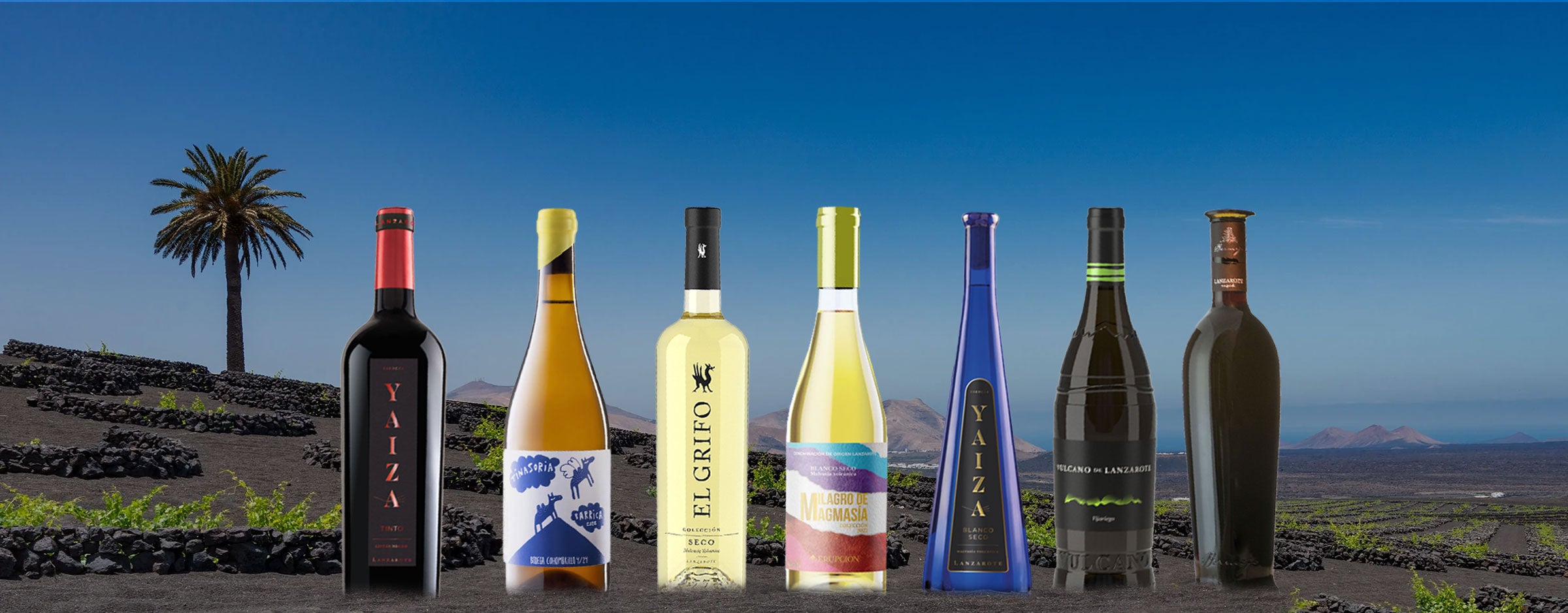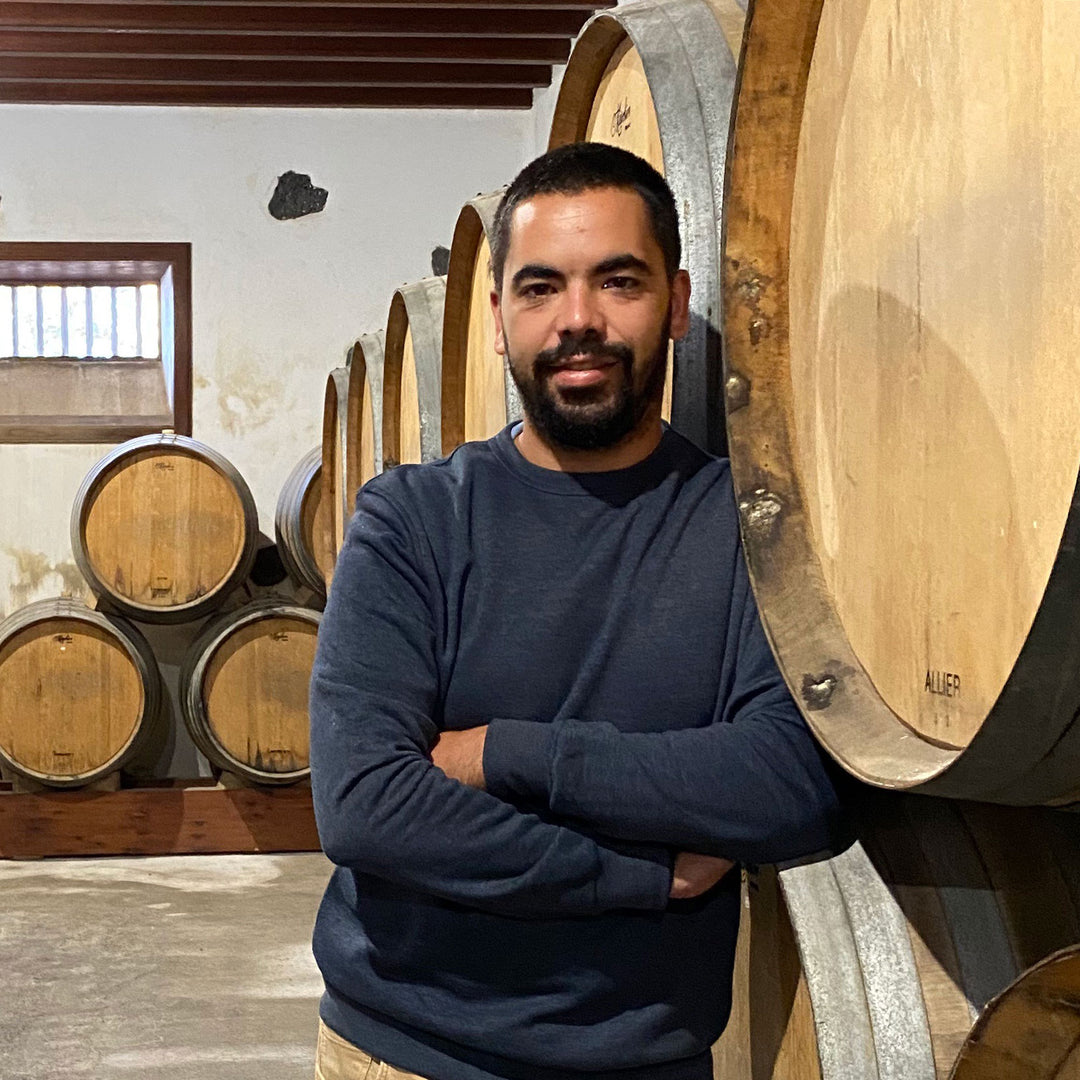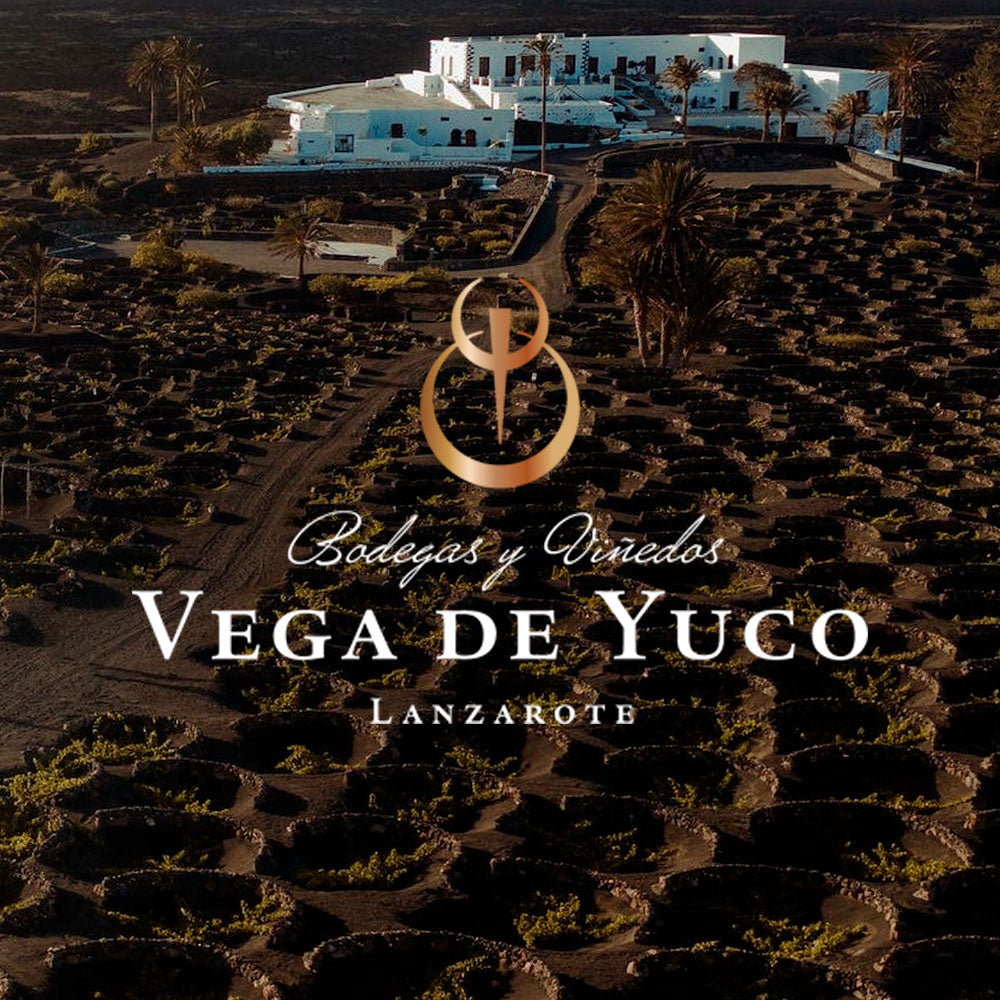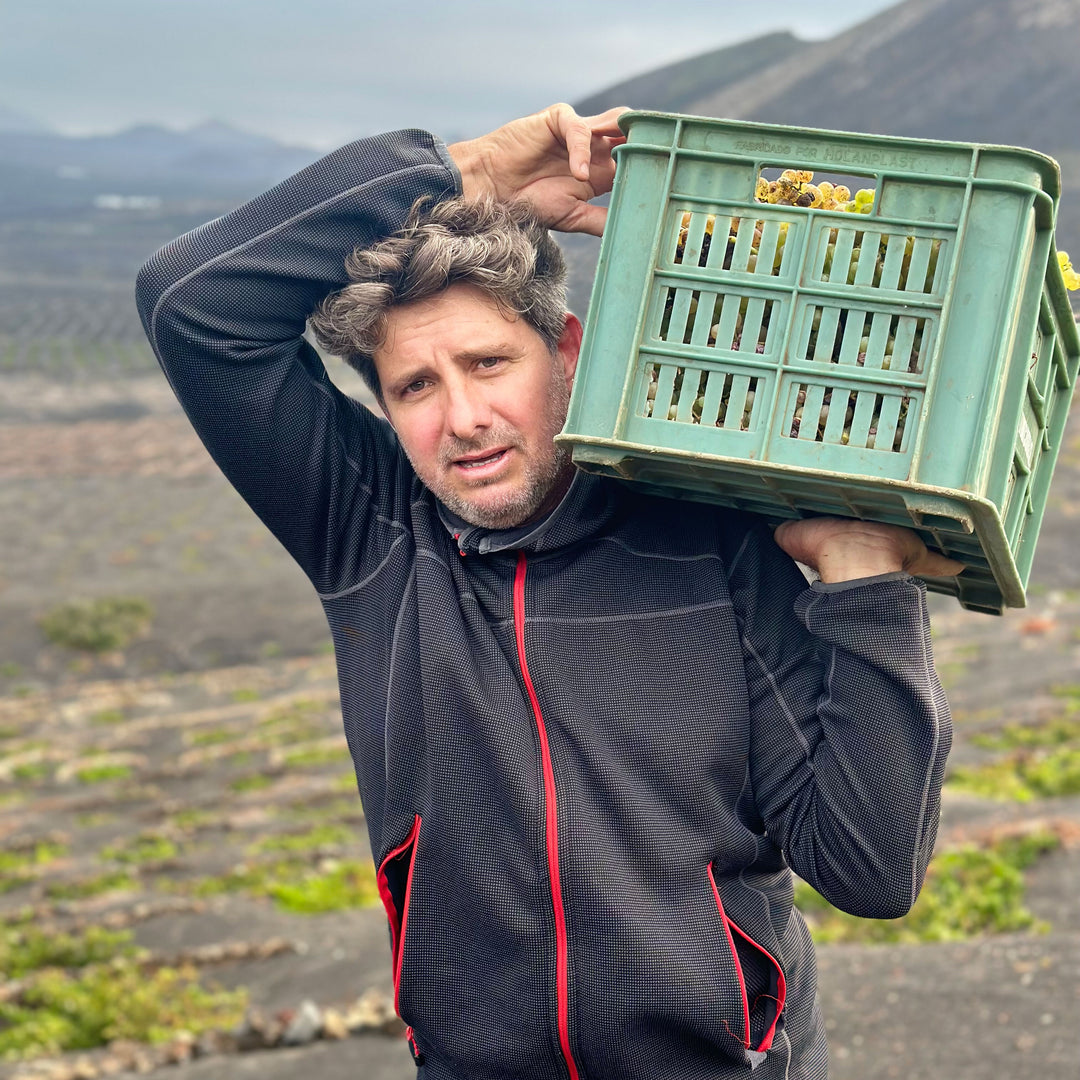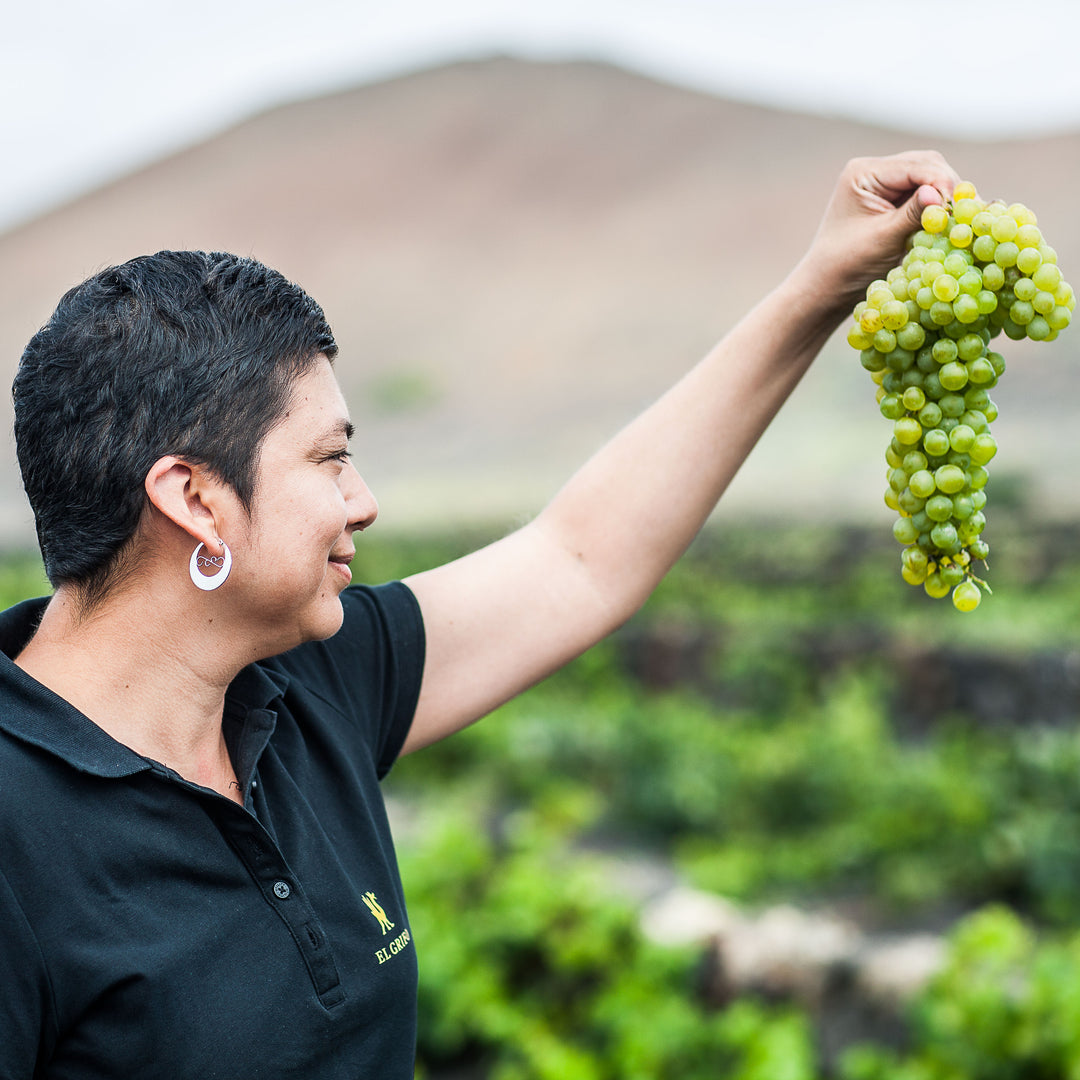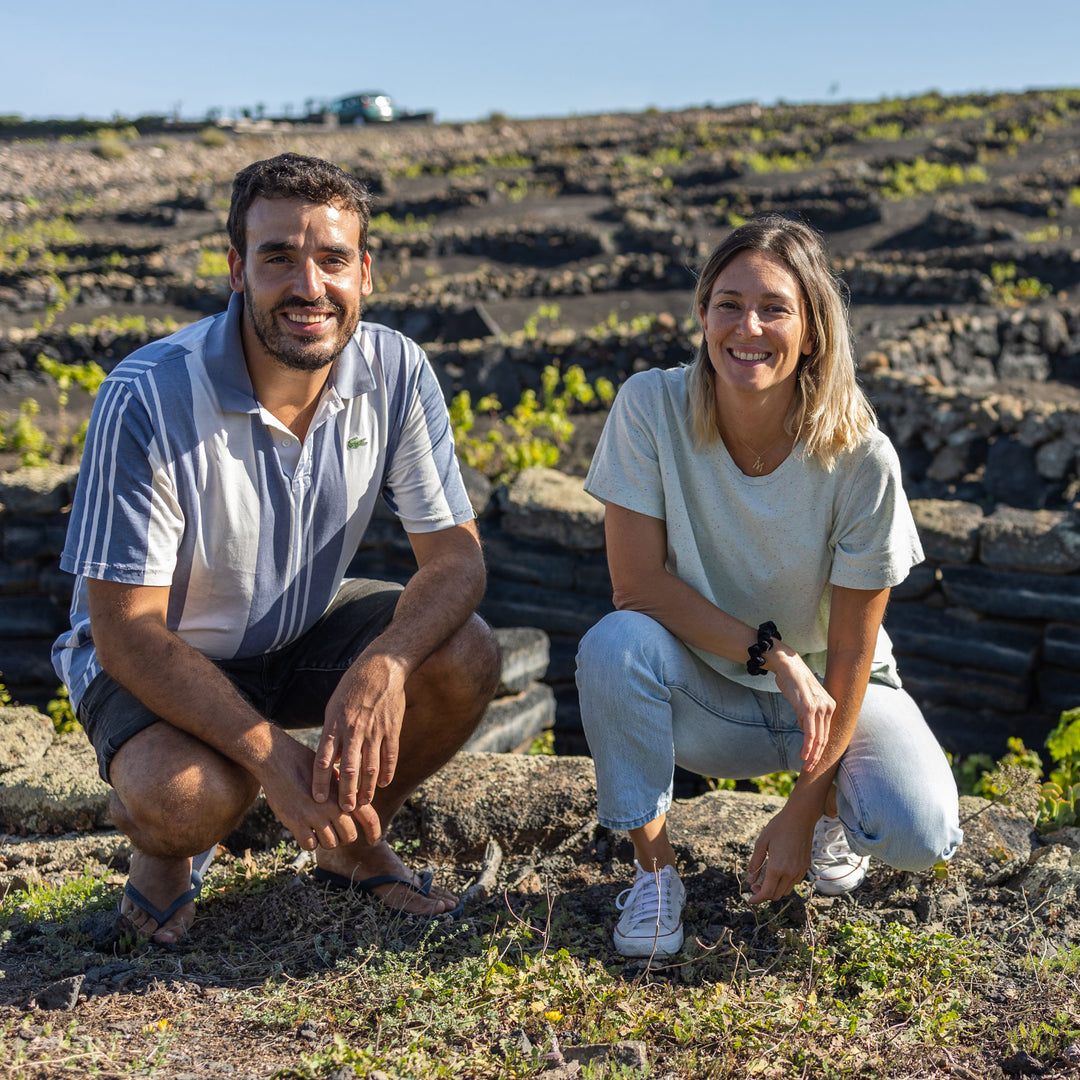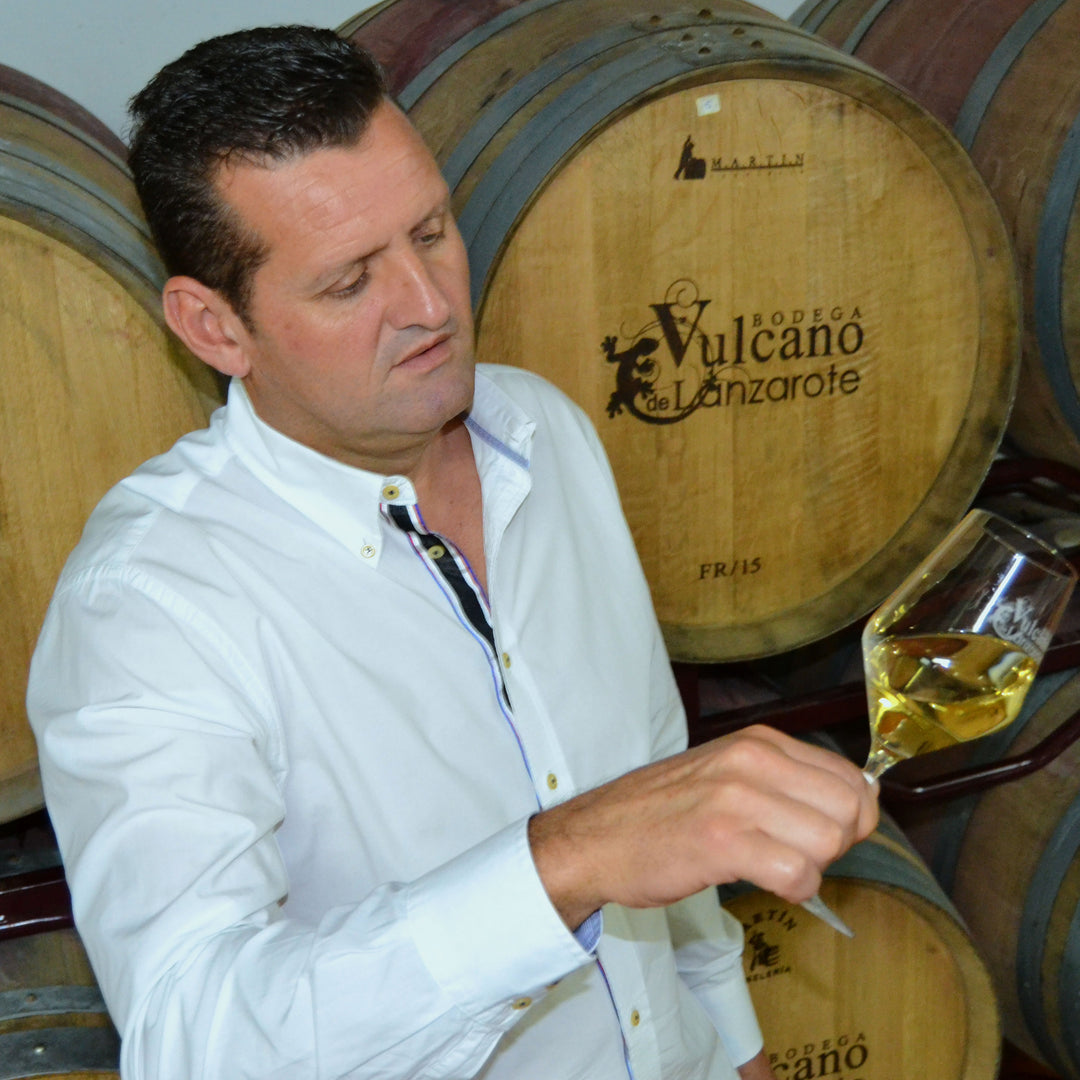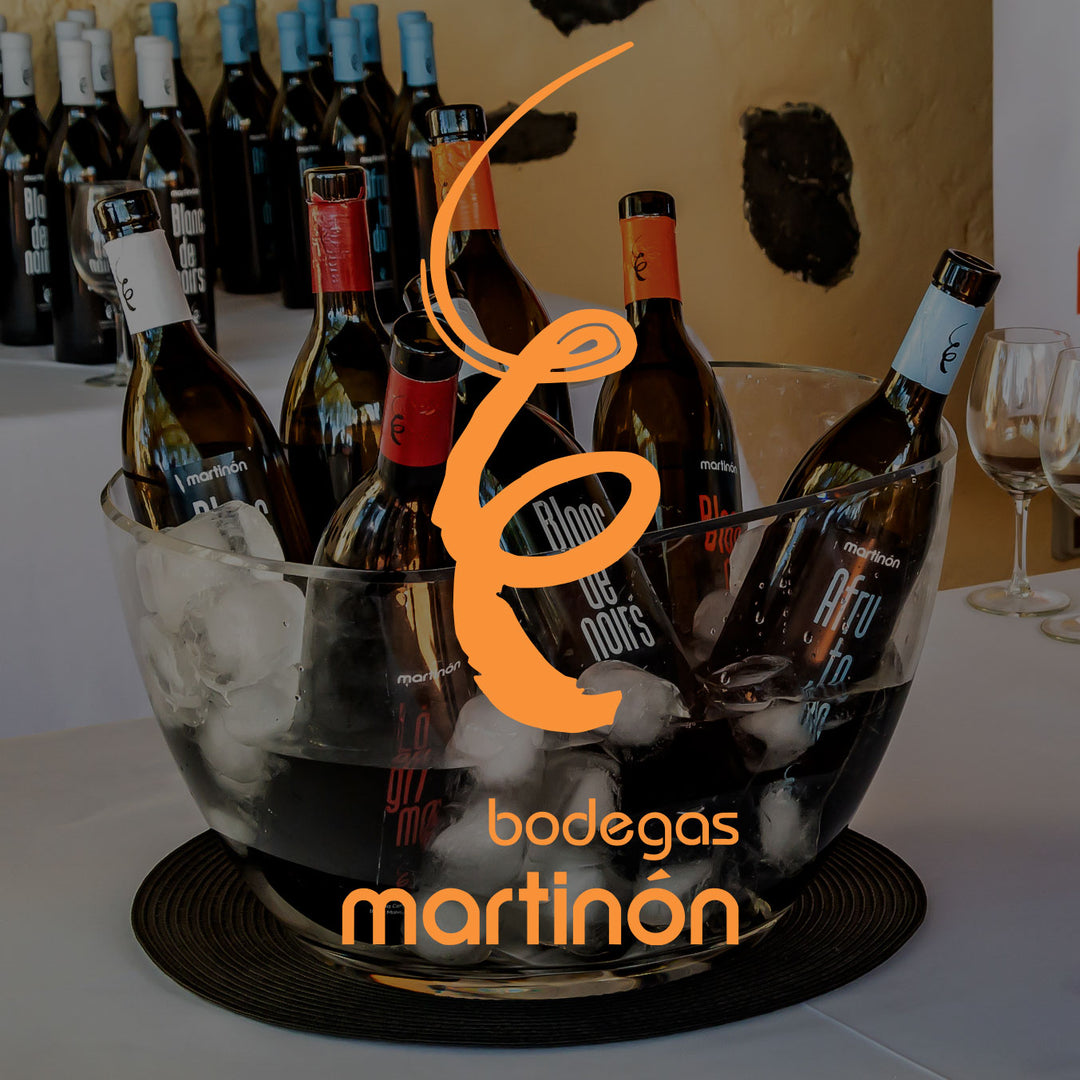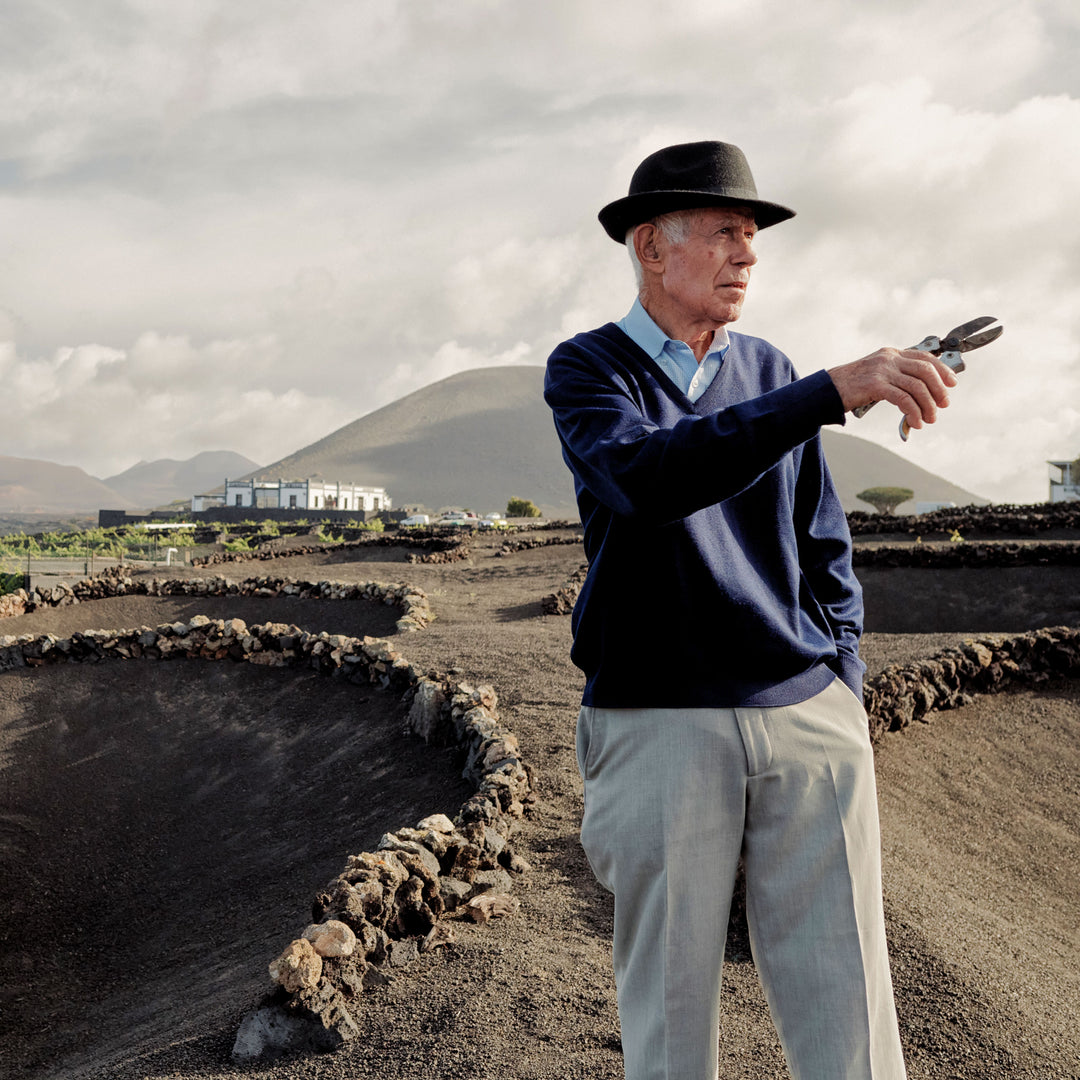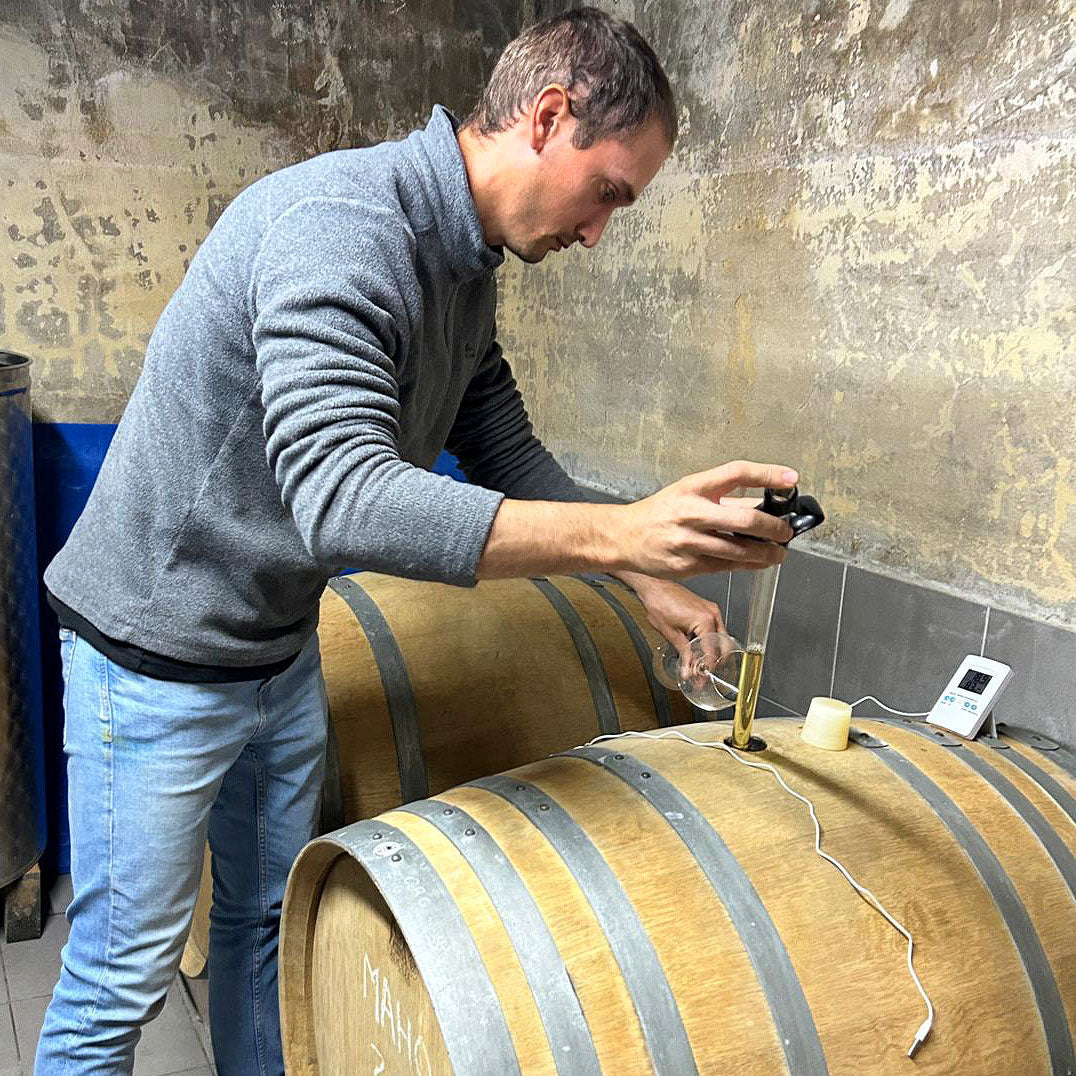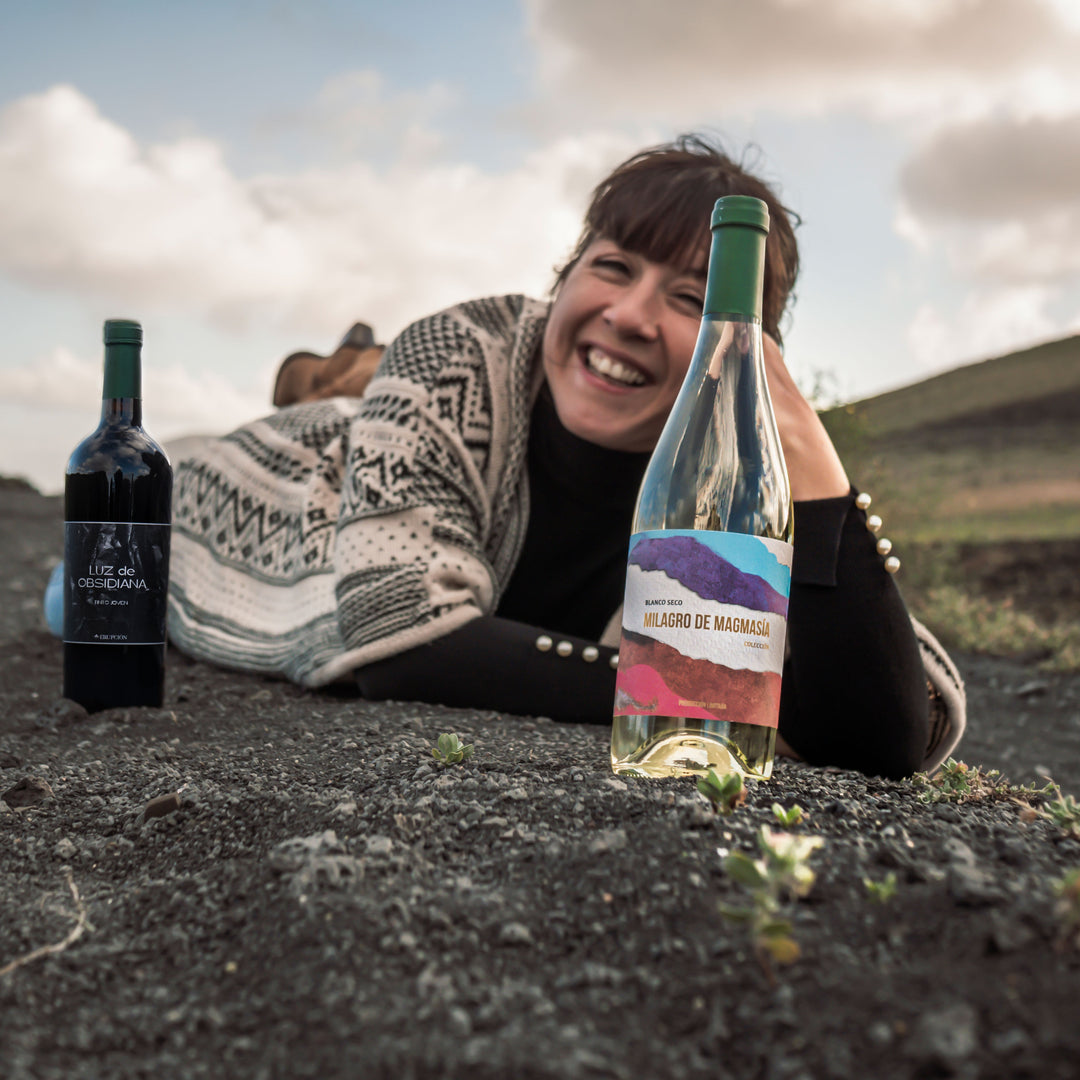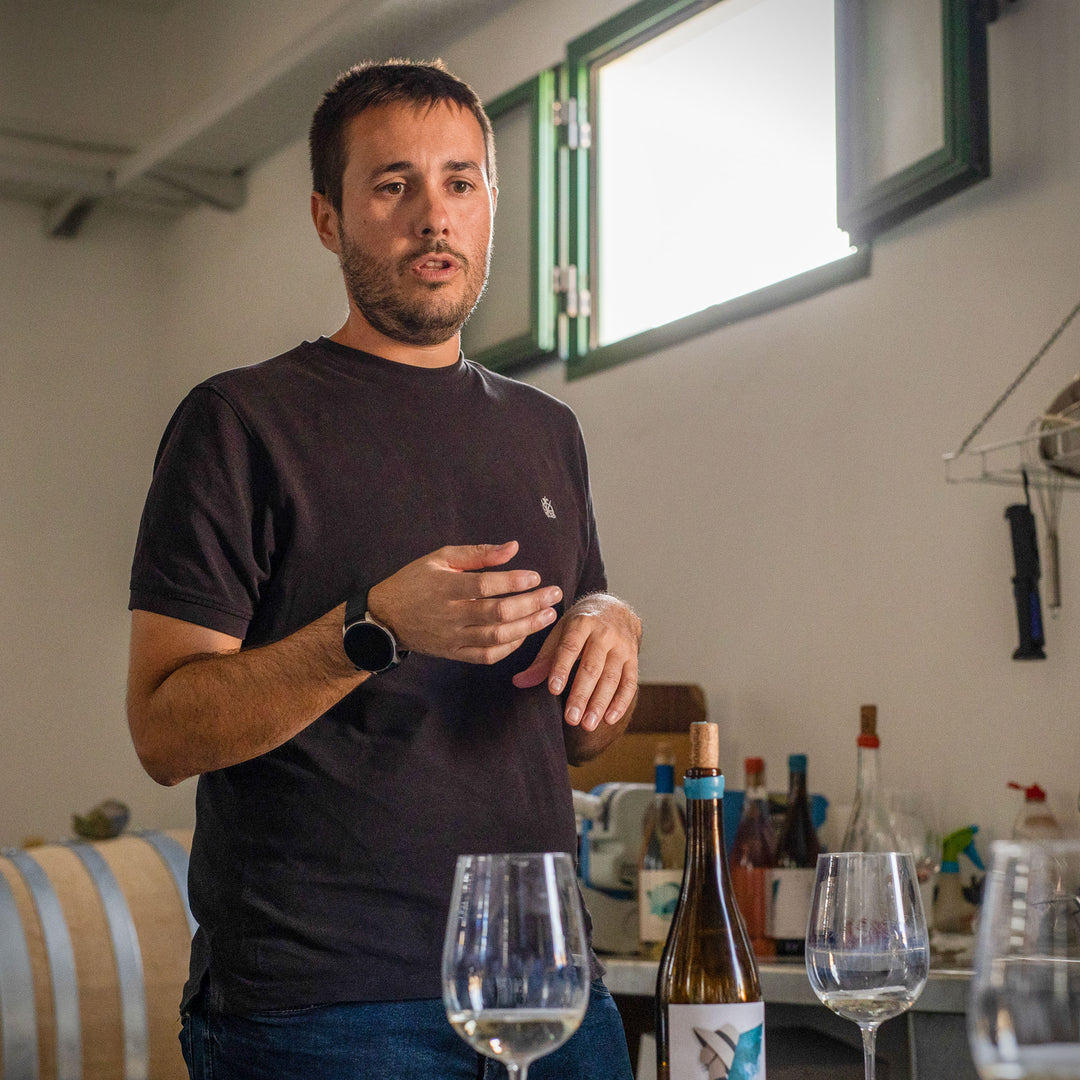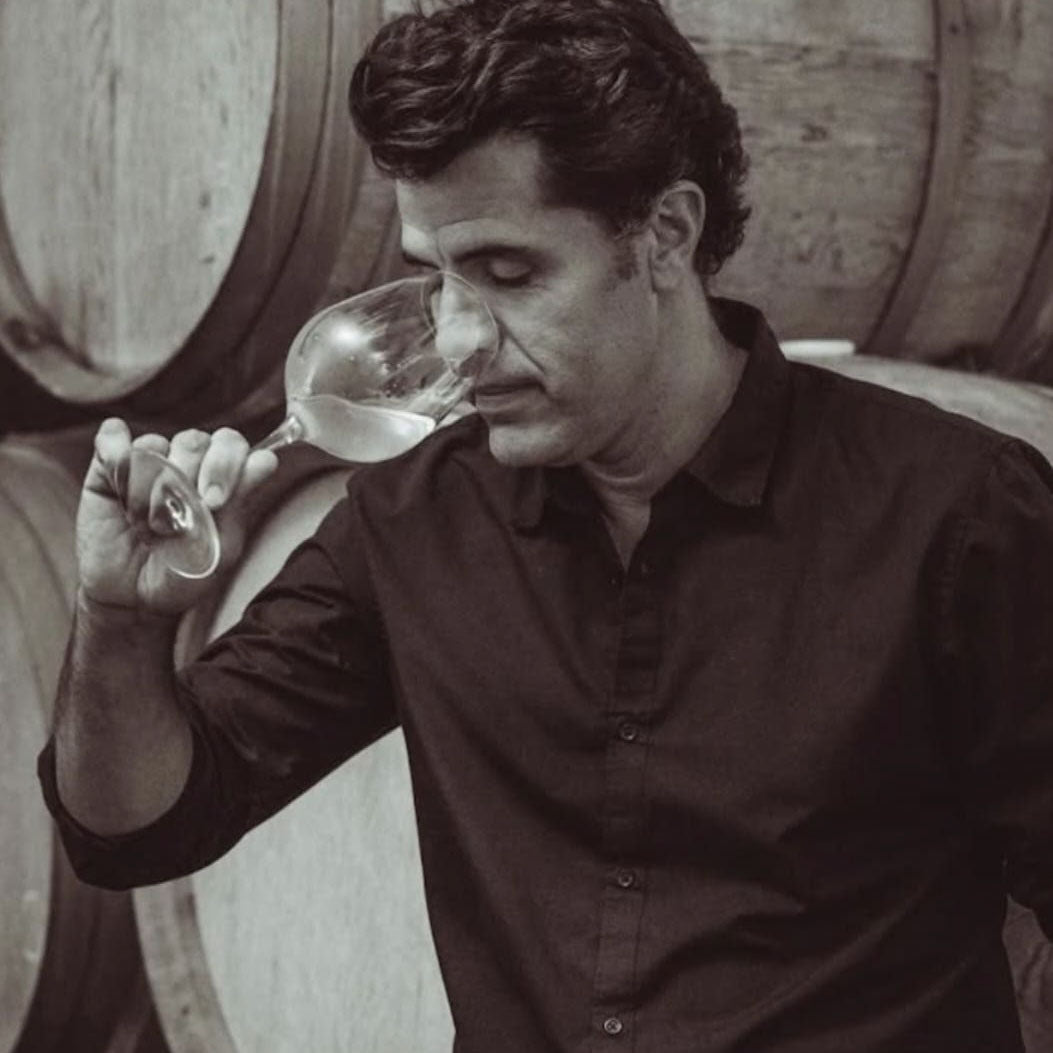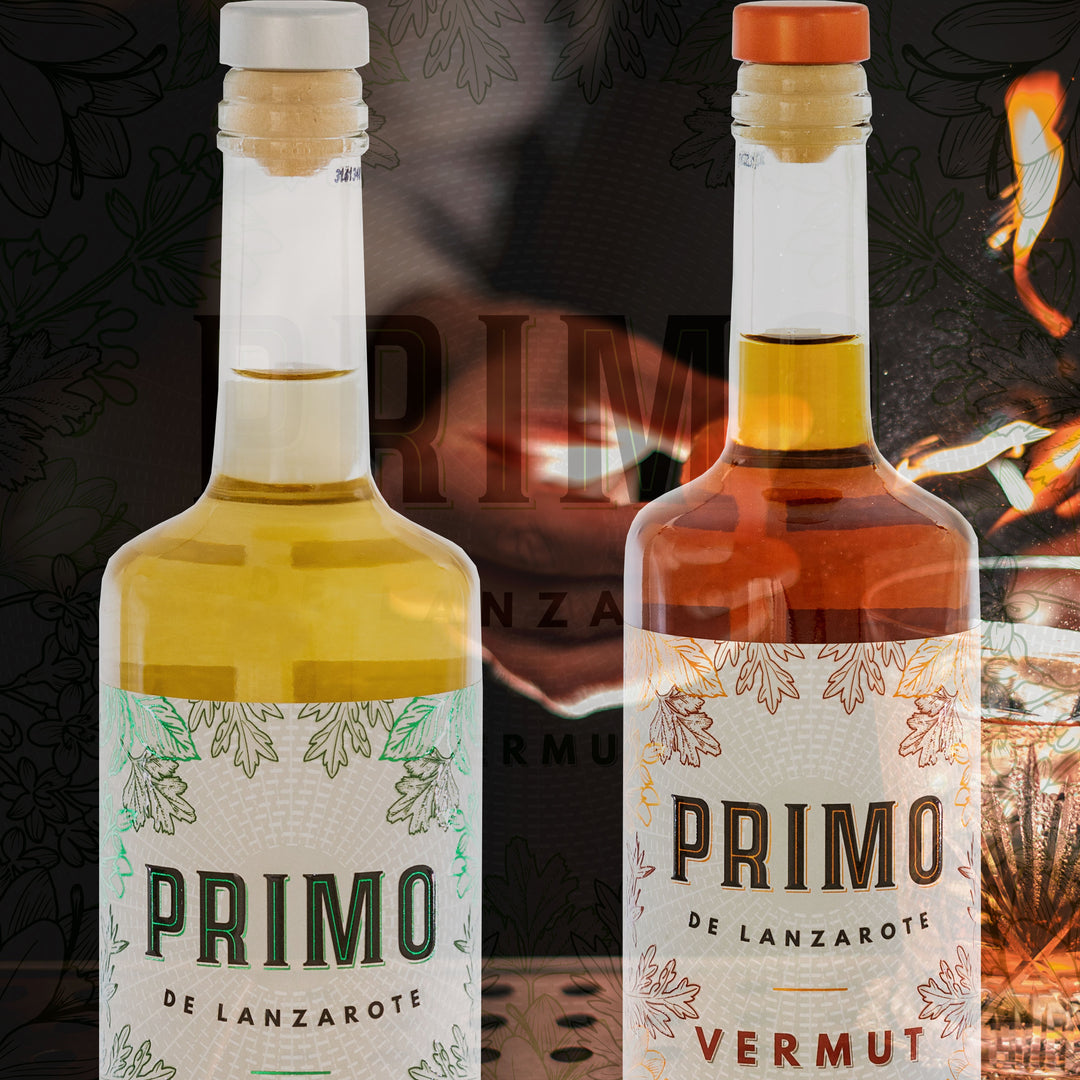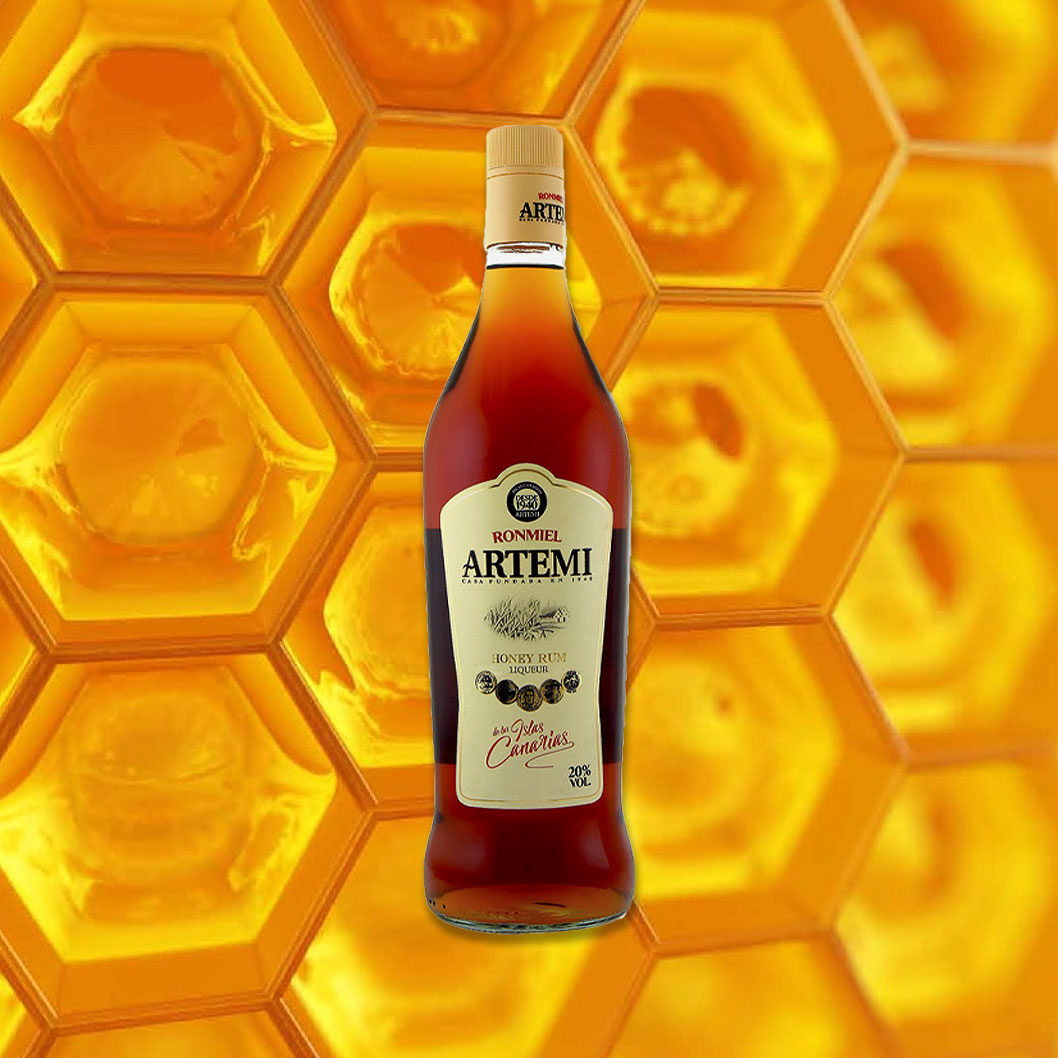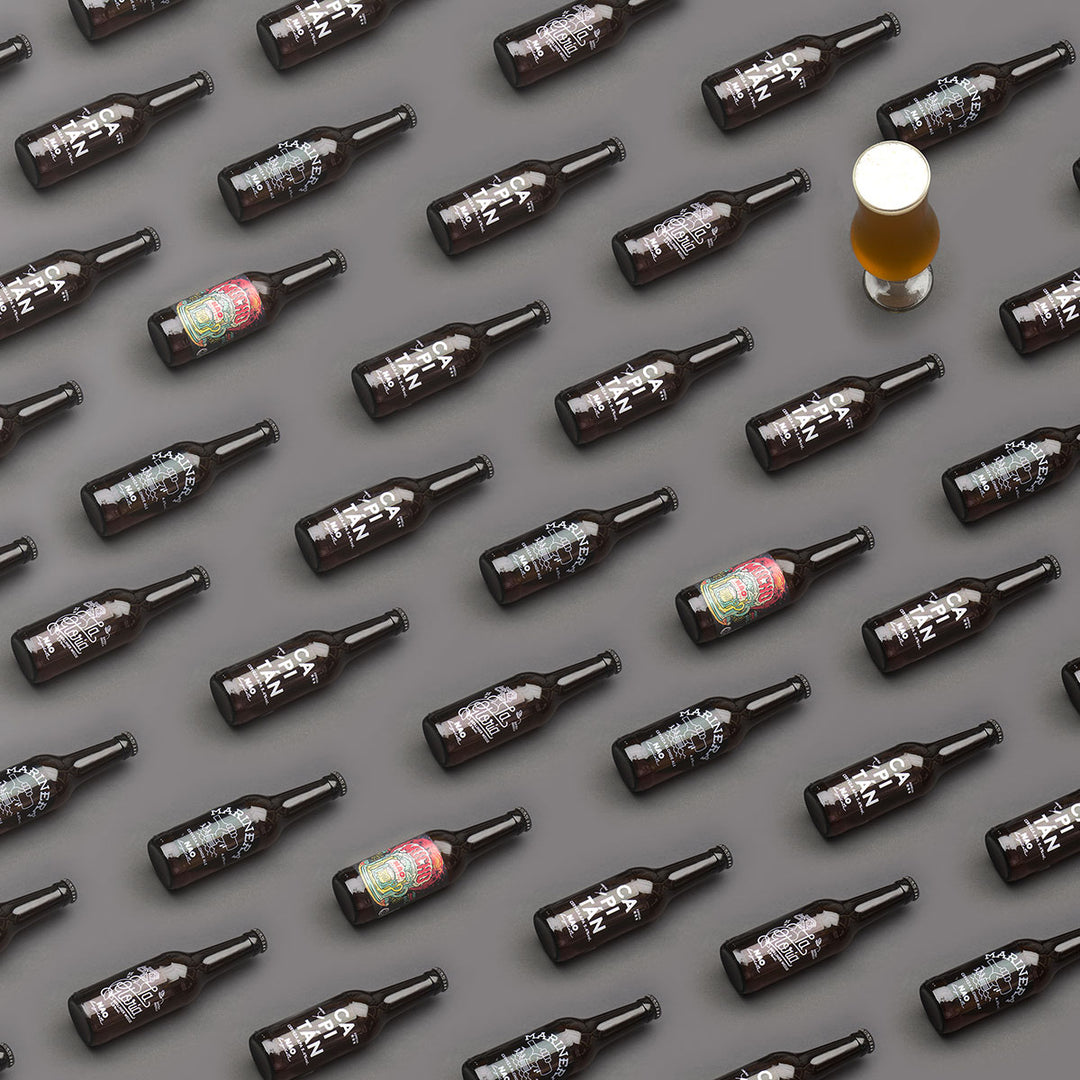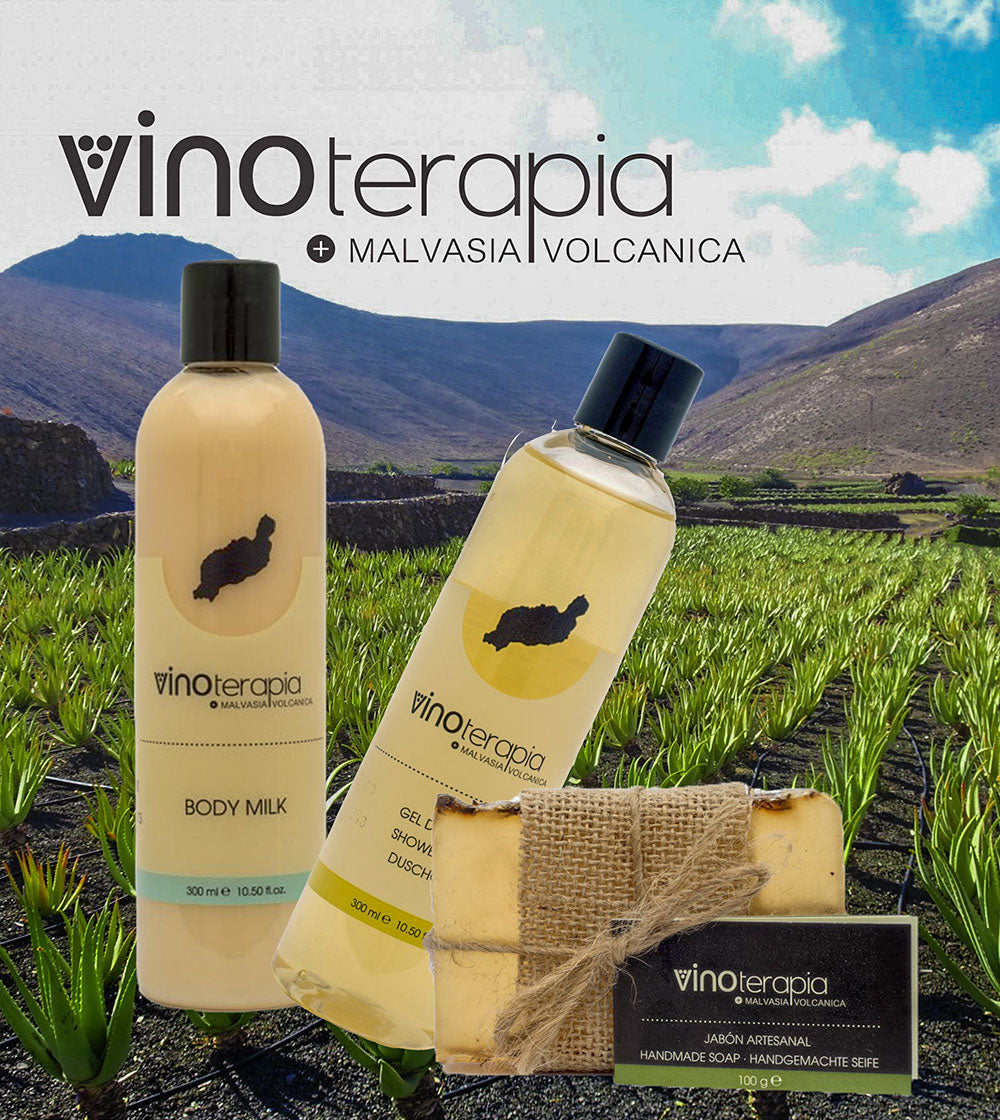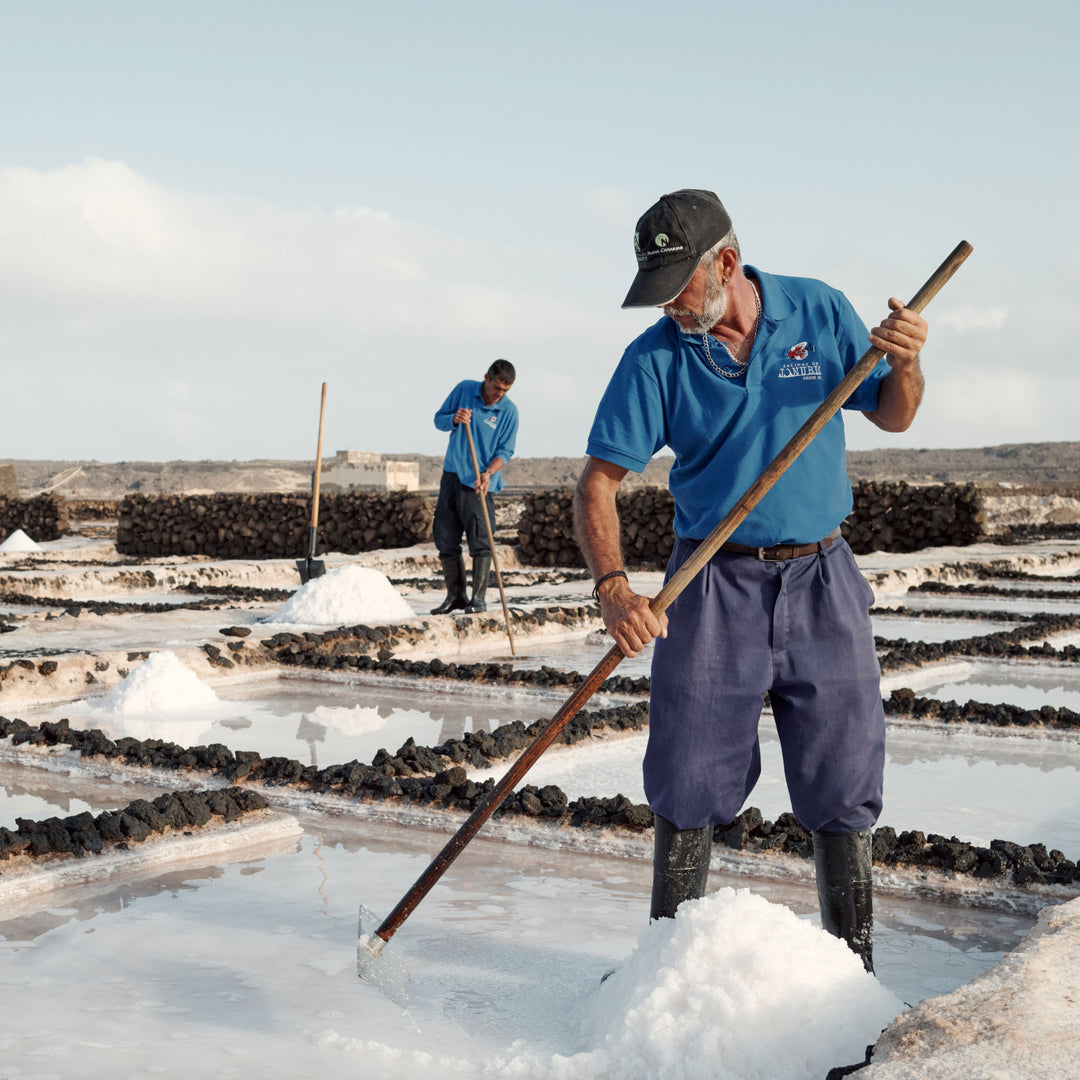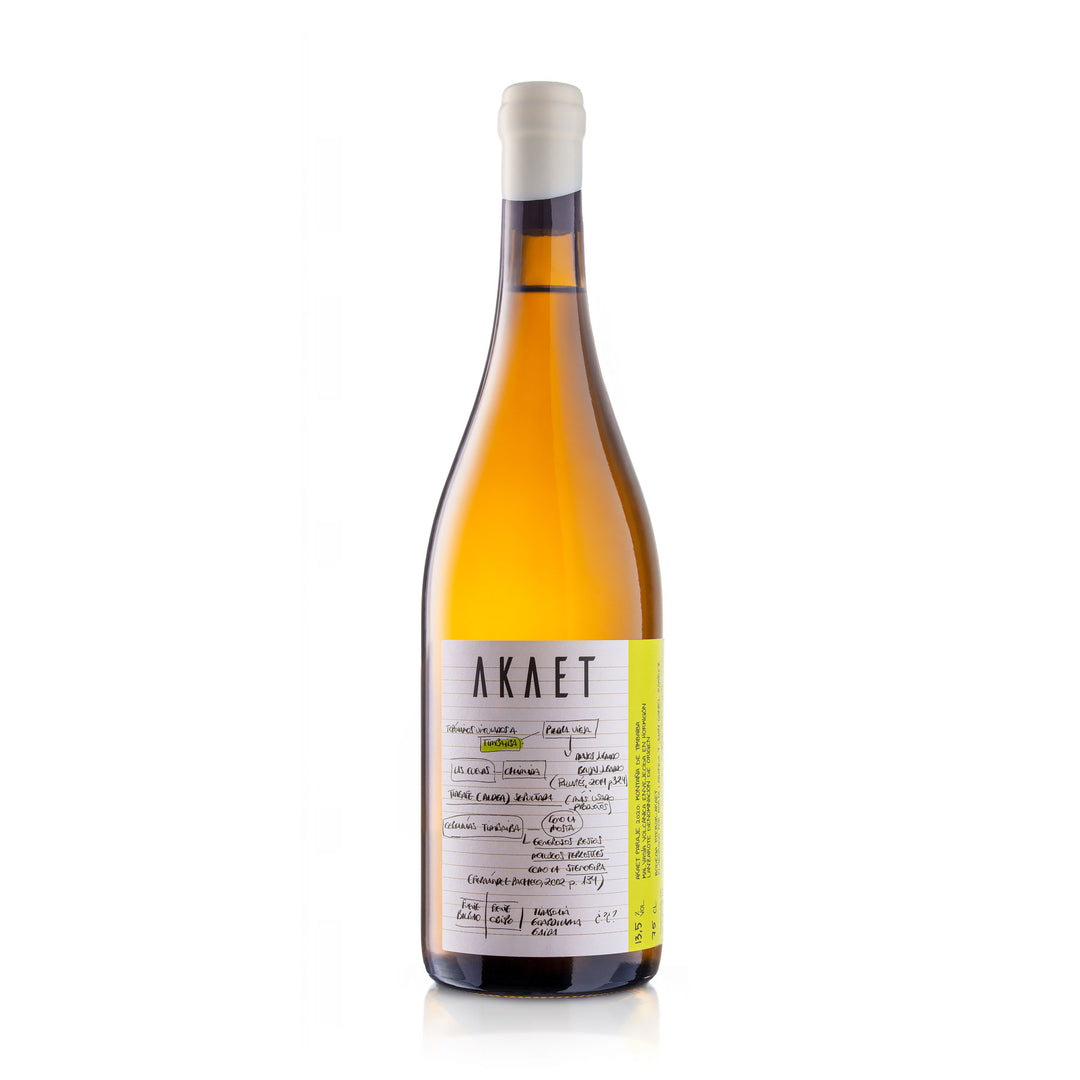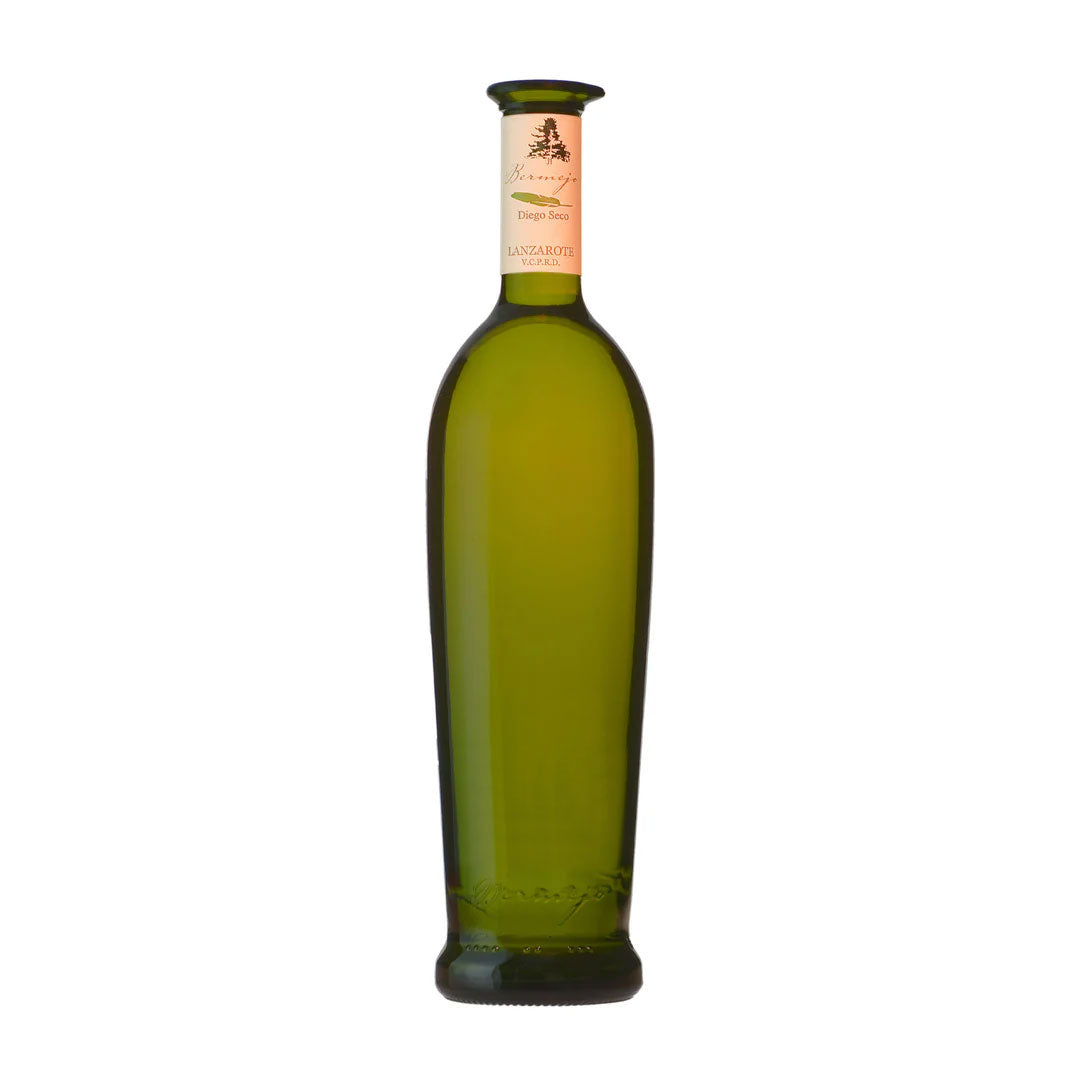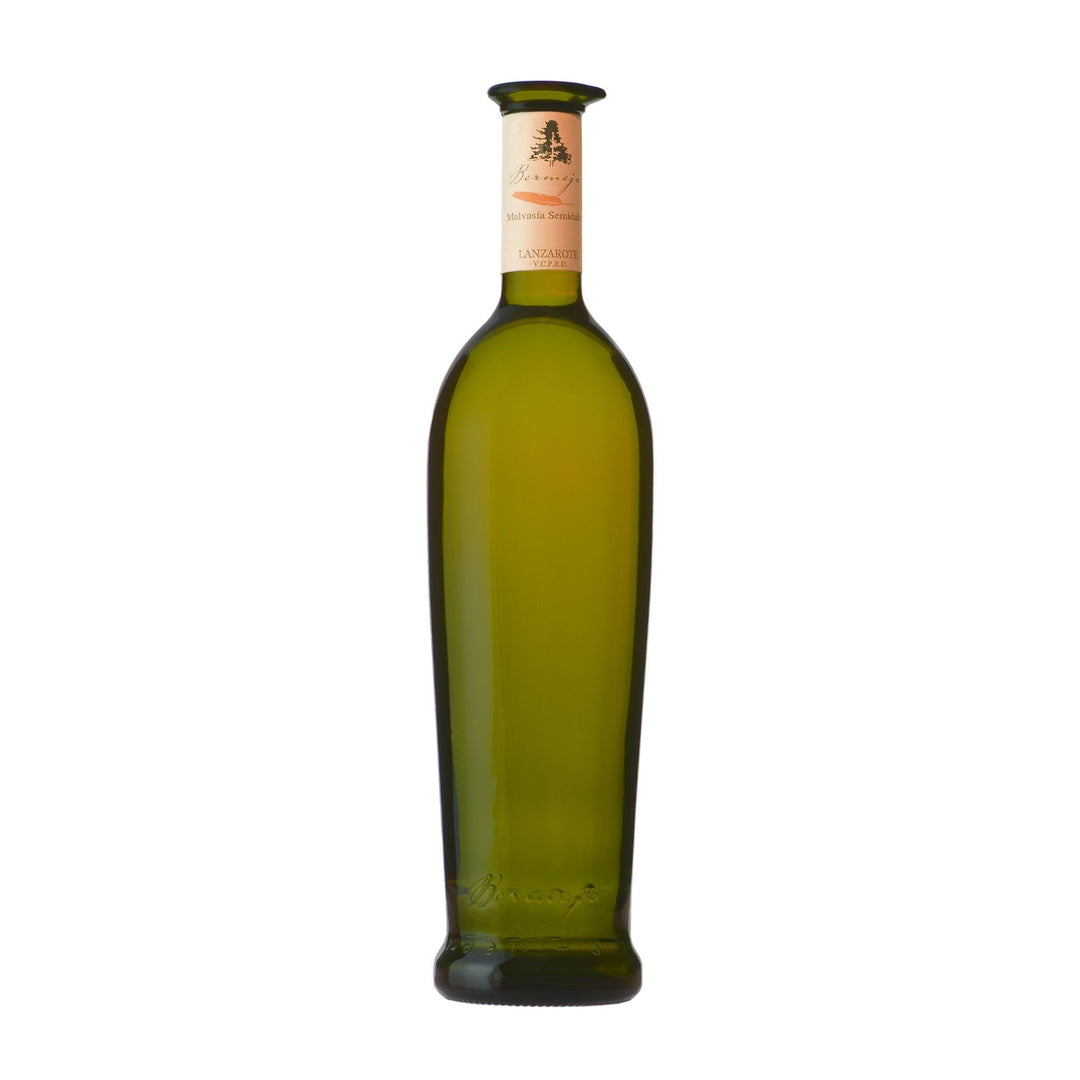Denominación de Origen
Lanzarote's volcanic legacy is evident in every bottle of wine. Established in 1993, the D.O. Vinos de Lanzarote guarantees exceptional quality through strict regulations, from vineyard management to bottling. This thriving scene boasts 21 vibrant wineries and nearly 2,000 passionate viticulturists carrying on a rich generational tradition.
Despite limited production (mostly enjoyed locally), the wines stand out with distinctive bottle designs reflecting the island's volcanic character. With winemaking deeply rooted in its culture (2,000 viticulturists!), Lanzarote thrives on a collaborative spirit. Smaller growers contribute to larger wineries, ensuring consistent quality control.
Each sip offers a unique taste of Lanzarote's story: volcanic soil, generations of passion, and a spirit of collaboration, all bottled for your enjoyment.
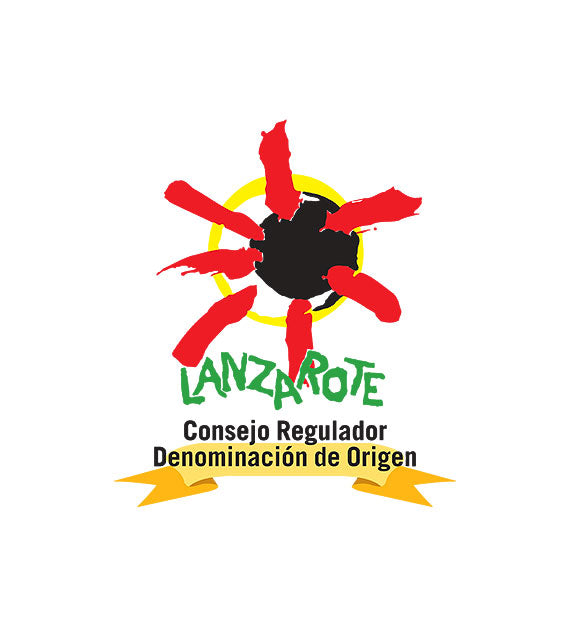
Bodegas Los Bermejos
Maximum Production – 700,000 Litres
The winery of Los Bermejos in its current model was founded in 2001. Even though the enterprise is recent, the building dates back to an 18th century estate, which was once owned by one of the Island’s influential families. Since 2001 they have grown significantly from their first harvest of just 60,000 kilograms. They are now producing 14 different, all native and unblended wines with the same ethos, keeping the ingredient pure and fully respecting it through the entire winemaking process. Bermejo was the first winery to capture the imagination of the wine drinker by introducing a unique bottle design, which has led a wave of bodegas on the Island to follow suit.
Bodegas Vega De Yuco
Production – 500,000 Litres
Vega De Yuco winery was established in 1997 and sits in the valley between Masdache and Montaña Blanca. Their aim is to produce fine wine, which expresses both quality and personality by combining traditional methods, with the newest technology. Their winery was revolutionised on the introduction of the Yaiza brand, and the Island’s now famous blue bottle in the early 2000’s.
Their winemaker and enologist, Tomas Mesa, is from a well-known family of winemakers in Tenerife. Engulfed in the world of wine from a young age, he now finds himself as one of the top viticulturists and winemakers in the Canary Islands.
Cohombrillo 4/24
Production – 5,000 Litres
A professional project since 2021, but many years in the making through Eamonn‘s passion and his family heritage of making wine and caring for vines. After the pandemic and a change from a previous occupation as a tourist submarine captain, he never looked back and now works alongside a young and renowned Canarian winemaker, Pablo Matallana. 4/24 is the time the clock broke, so if anyone asks that’s always the time in the bodega... and 4/24 is always a moment of peace and tranquillity for the family.
Pablo is a young consultant enologist from Tenerife but like many consultants working in the islands, he has plenty of experience in Lanzarote.
These most natural of wines are made in the most respectful way possible, without makeup or additives to preserve all the natural character of the landscape. Likewise the 12.5 hectares of vines, are cared for in an organic way.
Bodega El Grifo
Production – 1.200.000 Litres
El Grifo was founded in 1775, making it the oldest winery in the Canary Islands and one of the 10 oldest in the whole of Spain. El Grifo has been owned by the same family for 5 generation and over the years it has been the major innovator on Lanzarote. It regularly brought over modern-day equipment from the continent and in the early 1980’s it was the first to bring in stainless-steel vats, which has gone on to revolutionise modern day winemaking. Always pushing the boundaries, since the 2019 vintage they have began to experiment with cultivated yeasts from their own vineyard, in some of their wines bringing an extra authentic touch.
Titerok-Akaet
Production – 25,000 litres
A project that began in 2014, formally launched in 2017, which has since flourished! The bodega is focused on the recovery and maintenance of old plots with great varietal and clonal heterogeneity and by the variety of its soils and landscapes. Juan Daniel & Marta are now managing 10 hectares across the Island, including the northern region of Ye- Lajares. The vineyards are manually cared for in an organic and natural way. 2023 will see a production of 25,000 litres a significant step up from previous years.
Keeping wines natural is at the heart of the project. Caring for the fruit, fermentation at controlled temperatures and low doses of SO2. Given this they work with high demands on cleaning and inerting of tanks at each step of the process.
Juan Daniel, from Lanzarote is an agricultural engineer with a masters in enology. Marta originally from La Rioja, has a degree in biology and enology. Both hold various consulting roles on and off the island, from winemaking to the manufacturing of winemaking equipment.
Bodega Vulcano
Production – 100,000 Litres
Bodega Vulcano, with its stylish winery based in Tias was established in 2009. The current owner and winemaker Victor, is the 5th generation of winemaker in his family. Their concept of making wine has always been traditional yet in a boutique style, making wines both with identity and soul. They specialise in producing young wines, by having several fermentations throughout the year, to keep exquisite quality and freshness. The must is kept in a temperature controlled ‘must bank’ (unfermented grape juice) and then processed as and when required. They were the pioneers in this process on the Island and now may other wineries have followed suit.
All of the wines at Bodega Vulcano are officially certified as Vegan, due to their type of clarification and filtration processes. They are the only winery on Lanzarote with this certification.
Bodega Martinon
Production – 50,000 litres
Martinon started producing wine in 2006, aspart of a family love affair with the unique vineyards of La Geria. This artisan project aims to produce exceptional wines that represent the authenticity and personality of La Geria,while also showcasing innovation. The Blanc de Noirs for example was the first wine of its style produced on the Island.
Now owned by Eduardo Martinon (Jnr), thanks to his sister Carmen the wines have been collecting many awards on a national and international scale over recent years.
Bodegas Rubicón
Production – 400,000 litres
The building where Rubicon stands is the oldest of the world famous La Geria wine region. The land, building and close-by chapel are the remains of the country house known as “La Geria” that gave the region its name and predates the volcanic eruptions of Timanfaya.
Between 1730 and 1736, the estate fell victim to Lanzarote’s worst period of volcanic eruptions, leaving it completely covered in volcanic ash. Luckily, they were able to dig up parts of the premises and the chapel itself, which to this day remains in its original state. It is said that there, in 1735, the famous cultivation of La Geria first began. Thanks to this, it’s home to some of the oldest vines in la Geria.
The Bodega as we know it today began in 1979, in the hands of Don Germán López. Since 2009, the bodega has been restored with modern facilities, while conserving its heritage. Now, Bodega Rubicón produce a wide range of wines through two different brands: Rubicón and Amalia.
David Fernandez
Production – 7,000 litres
A new and exciting project lead by David Fernandez, a native of Lanzarote. A huge amount of dedication and commitment has already gone into this project. David has only recently been producing natural wines under the Lanzarote Denominacion de Origen and has already taken his production from 3,000 to 10,000kg in the past 12 months. David is based in the north of Lanzarote, as are many of his parcels of rejuvenated vineyards.
David’s wines are all natural and the range is evolving as his project develops. 2023 will see a range of up to 11 wines. Many of these will be single parcel wines with a key focus and interest to the different terroirs and cultivation methods across Lanzarote. David’s wines tend to be a touch lower in alcohol.
David, at just 28 years old is one of the new generation of winemakers. He holds a masters degree in agro-engineering and has years of experience working alongside the enologist at Bodega El Grifo. In 2019, David has been transforming his family’s previously abandoned vineyards and others connected to his family roots, producing exceptional signature wines.
Bodega Erupción
Production – 10,000 Litres
Founded by winemaker Amor Lopez in 2021, Bodega Erupción is a new winery, but represents 150 years and 3 generations of heritage and family tradition. Erupción marks the start of a generational change, not just from the people involved, but also optimising resources and the vine cycle in the face of climate change.
The first signature wines were produced in 2021 from ungrafted, 100+ year old vines. The wines reflect the volcanic soils of where the grapes are grown. Spontaneous fermentation is undertaken with minimal intervention. Amor produces around 8,000 litres per year alongside her father Marcial, who still produces around 2,000 litres for the local villagers of Tao in the centre of Lanzarote, all in a traditional way.
Amor personally farms 16 different parcels across the island together with her father. Her family have made wine for generations and Amor’s biology and enology qualifications were undertaken to carry on the heritage and take it to the next level. She was the first woman from Lanzarote to do this, when she returned to the Island from Madrid.
Bodega Olivina
Production – 10,000 Litres
Bodega Olivina is the latest creation of Jorge Rodríguez, a renowned local winemaker and while one of the young guns of Lanzarote wine, he is also the current president of the Denomination of Origin Lanzarote. Jorge is an agricultural engineer and winemaker, with past experience at El Grifo followed by another family project before producing the first Olivina vintage in 2024.
The winery and many of the vineyards are located in the northern part of the island, beneath the majestic Corona volcano (Volcan de la Corona). This vibrant volcanic terrain, shaped by past eruptions 21,000 years ago fit well with the bodega's philosophy: to honour nature and work in harmony with it.
Bodega La Geria
Bodega La Geria is located in the heart of Lanzarote’s main wine-growing region, also known as La Geria. It is one of the island’s most renowned wineries and among the most visited in all of Spain.
The winery was built in the late 19th century, but since 1993 it has been managed by its current owners, who introduced modern technology to ensure the highest quality in winemaking.
Today, Bodega La Geria has a production capacity of 450,000 liters, primarily stored in stainless steel tanks, with a smaller amount aged in oak barrels.
The annual production reaches around 300,000 bottles of young wines, made mainly from Malvasía Volcánica.
With a strong commitment to tradition and innovation, Bodega La Geria continues to share the authentic taste of Lanzarote with wine lovers from around the world.
Primo Vermouth
Maximum Production – 7,000 Litres
Primo de Lanzarote is a project that began in 2017 to become the first vermouth produced on Lanzarote. It is the brainchild of its main protagonist Davide Musci, who backed by two friends, was encouraged to commercialise his near lifelong hobby and passion.
These three Italian friends investigated and explored traditional Canary Islands recipes, until they created an original recipe for what was to be the first vermouth on the Island, hence its name ‘Primo’. To make it special, they experimented with different autochthonous herbs and plants such as coriander, Canarian sage, saffron, prickly pear, Canarian oranges, etc. The wine used is premium quality from a D.O. winery on the Island and is a blend of Malvasia Volcánica and Diego grapes, providing a further unique touch.
Artemi Honey Rum
Canarian rum is considered one of the best in the world. Thanks to their location, the Canary Islands have been an important pit stop for many travellers and shipments for centuries, including the first shipments of sugar cane between nations. Sugar cane thrives in this climate, and since then, one of it’s by products, rum, has become an important part of Canary Island identity, culture, and tradition.
Founded in 1940 and named after a native Canarian King from the XV century, Artemi is the creator of a traditional rum recipe tailored to the Canarian palate. This brand takes pride in its Canarian heritage and culture and is particularly well known for its Honey Rum. Today, Artemi is 100% Canary based, and now a member of the Arehucas Distilleries Group which dates back to 1884.
Cerveza Nao
Cerveza Nao is the brainchild of Miguel Lasso, a local of the Island who in 2016 set up his state-of-the-art brewery and brew pub in a refurbished warehouse in the old fishing district of Arrecife. After owning a successful marketing and advertising business, he sold out and combined his passion of marketing and great beer! Since 2016 his project has gone from strength to strength, driven by the quality of his award-winning beers and his drive to put local craft beer into the mainstream in the Canary Islands. Never scared to experiment and collaborate, the product range has evolved and changed over recent years. In the past year Miguel has successfully collaborated with UK brewery Mondo Brewing, both here on Lanzarote and back in London. As an Island in the middle of the Atlantic, nothing is straightforward in Lanzarote and that is the same inside the brewery. The brewing water is filtered and remineralised seawater and to give an additional Canarian twist, local unmalted grain is added alongside the malt in all the beers to add to the persistent head characteristics.
Cosmetics Vinoterapia
Lanzaloe is a company that is devoted to the creation of products based on Aloe Vera. They combine the knowledge and tradition with the latest technologies, putting all the benefits Aloe Vera has to offer in their clients´ hands. In 2011 a collaboration agreement was signed with the Regulatory Council of the Designation of Origin of Wines of Lanzarote and Lanzaloe. At this point Lanzaloe decided to develop a line of cosmetic and personal care products by combining the juice of fresh organic Aloe Vera leaves with the most famous Lanzarote Denomination of Origin wine varietal, the Malvasía Volcanica. Two years later, they launched the line of Vinoterapia Malvasía Volcánica, becoming pioneers in launching a line with these characteristics and ingredients. The line is designed to provide elasticity and firmness to the skin, slowing down cell aging, giving it a healthier appearance and promoting microcirculation. Living in a proclaimed "Biosphere Reserve" by UNESCO, they are aware of the importance of preserving the environment. They are committed to a strict ecologic agricultural process that is environmentally friendly and concerned about the plant cycles. None of the products are tested on animals.
Salinas de Janubio
On the southwest coast of Lanzarote, at the foot of the volcanic National Park of Timanfaya, and exposed to the strong sun, waves and wind, the award winning Janubio salt crystals are obtained. Using traditional salt beds that date to 1895, the manual artisan process has been passed down for generations, and to this day, the enterprise is family owned.
The marine and volcanic nature of the island adds an exquisite flavour, that speaks to the high quality of the salt. On the other hand, its artisanal methods create an amazing landscape that represents an authentic salt garden and focuses on the cleanliness of the products, while ensuring there are no microplastics in them.
Salinas de Janubio takes pride in its Canarian heritage and its importance in the island’s trading history, when before refrigeration much of the salt was used to preserve fish for their voyages.




